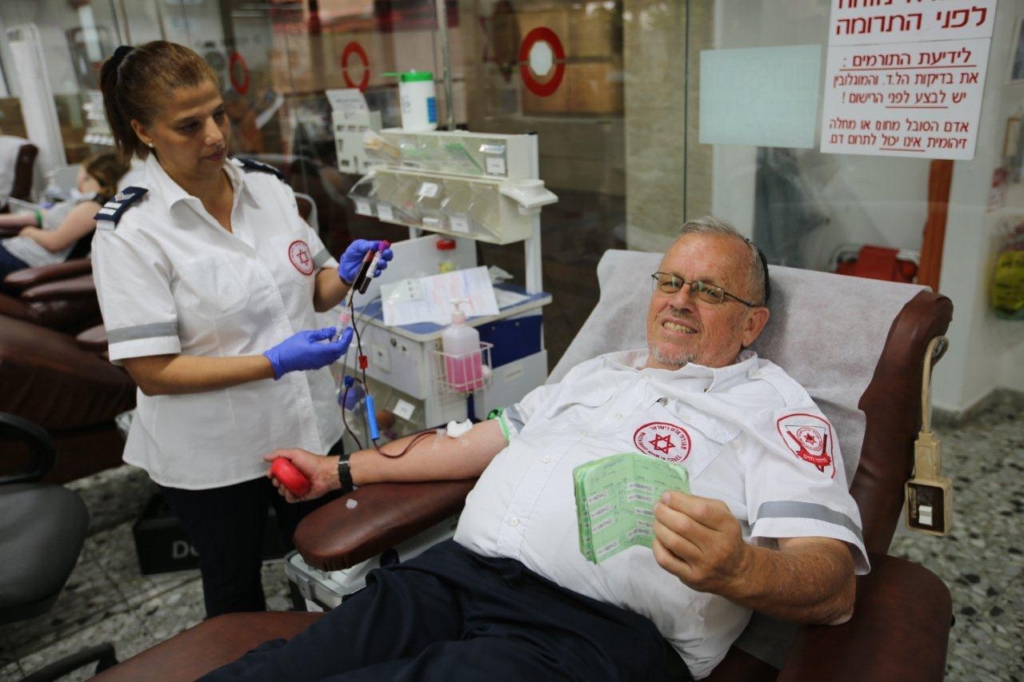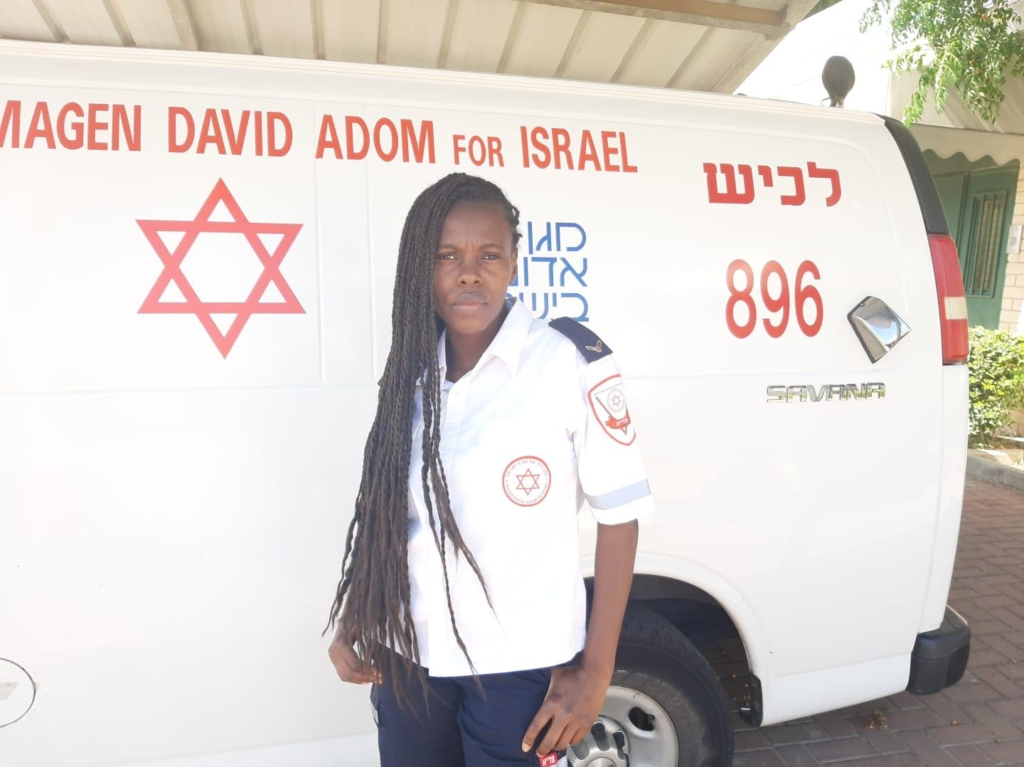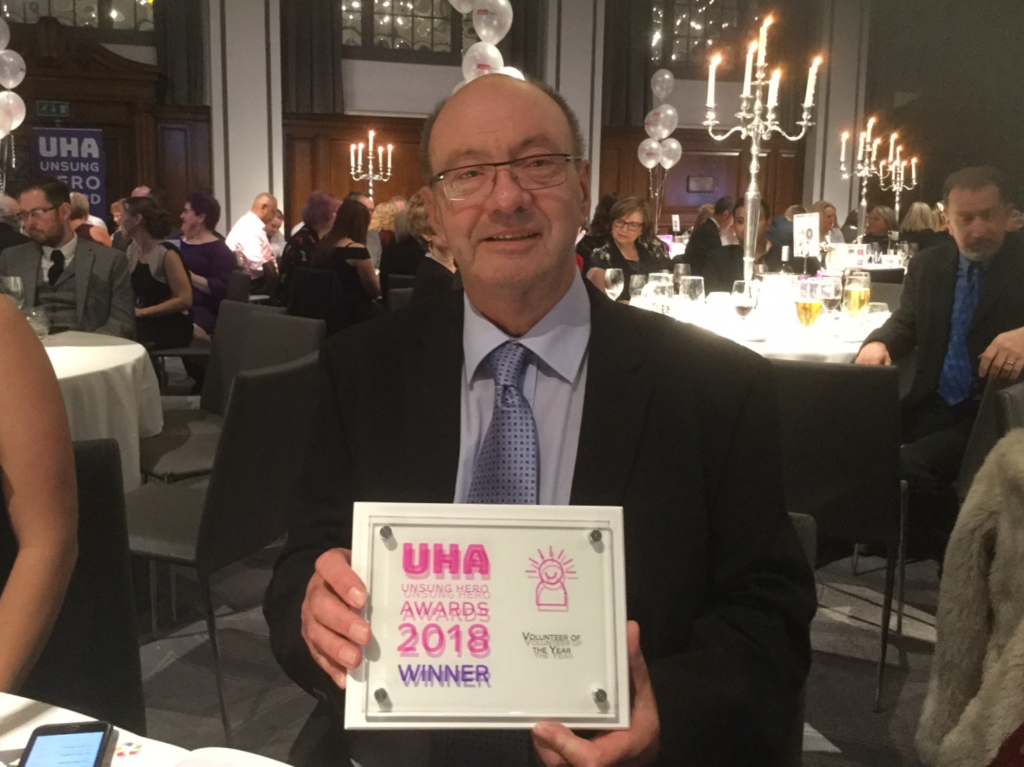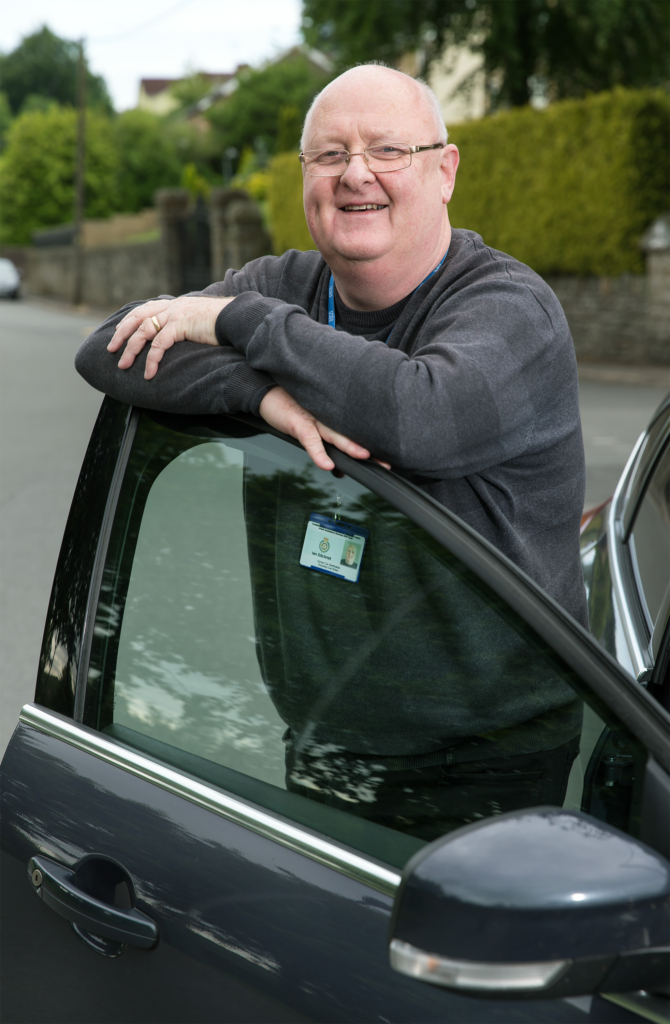One Family, 600 Units of Blood
https://chat.whatsapp.com/AmbulanceTodayDirect
Giving is in their blood. In the 1970s, when Moshe (75) was a young student at Bar-Ilan University, he decided to try to donate blood in MDA for the first time in his life.
Since then, he became a regular donor and has continued to donate every month, and over the years, he has also passed this on to his children and grandchildren.
This week, his granddaughter donated blood for the first time in her life — the family’s 600th blood donation.
This morning, Sunday, marks International Blood Donation Day around the world. At the same time, with extraordinary timing, the Gelerenter family celebrates the 600th blood and blood product donation of family members who have donated blood continuously over the past several decades.
The special “hobby” began in the early 1970s, when the family’s grandfather Moshe Gelerenter was a young student in Bar Ilan.
During one of the breaks, he encountered a MDA Blood Mobile and decided to come in and make a donation — for the first time in his life.
Since then, after realizing the importance and need of the donation — he has not stopped donating and over the years has added his children and grandchildren to the donor list.
Moshe is a father of four and the grandfather of two grandchildren and one of the longest blood donors in MDA.
To date, Moses has donated 305 blood and plasma units since he began donating regularly in 1988.
This week, his young granddaughter (17.5) donated her first blood donation, which marked the 600th donation of family members.
About a year ago, Moshe had a heart attack and had to stop donating. As a result, Moshe decided to continue to help in other ways — and joined the MDA blood donor organization during which he was a volunteer donor in the pharesis unit.
From 1988 until the last years, Moshe donated regularly and hasn’t missed an opportunity to donate.
Because of the sense of mission and giving, Moshe recruited his four children, two grandchildren and other relatives to donate — which together reached a total of 600 family blood donations this week.

Regarding the sense of mission and family effort, Moshe said: “Until the age of 73, I have been donating regularly since the 1980s.’
“Unfortunately, due to a cardiac event and sugar problems, I can no longer donate. Nevertheless, I found another way to help MDA and the Corona crisis I volunteered in the organization and brought more blood donors.’
“I feel I did mine. I was able to educate the next generation and now my grandchildren are donating with their initiative and with great desire.’
“I started donating regularly when I was told about a baby who needed urgent blood donation. The story really excited me and I immediately wanted to donate.’
“This week, my young granddaughter donated her first unit of blood, which marked 600 units of blood from the Gelerenter family.’
“It is an exciting symbol of the continuation of generations and the continuity of giving. To my delight, there is no one in the family who is afraid of needles.’
“I thank G-D for leading me to this endeavor and I am grateful to have been able to help. Most important to me is that my children and the next generation, grandchildren, go my way and donate nonstop.’
“Each has donated dozens of doses of blood and they do not intend to stop. I consider the donation a supreme value and hope my story will serve as an example to others.”
Prof. Eilat Shinar, MDA Deputy Director General- Blood Services: “Moshe is one of the best and most special people we have met.’
“We, in MDA Blood Services, help 1,800 patients around the country who need blood transfusions to save their lives.’
“At the time of the Corona crisis, the importance of plasma donation became particularly significant, with the aim of helping the severely ill and preparing for the next wave.’
“Dr. Karl Landsteiner, who discovered the types of blood and thus his birthday marks the day of blood donation around the world on, would have been happy to know that there are special people like the Gelerenter family.”
Quality content
- Casinos Not On Gamstop
- Casinos Not On Gamstop
- Casino Sites Not On Gamstop
- Non Gamstop Casino
- UK Online Casinos Not On Gamstop
- Casino Sites Not On Gamstop UK
- Casino Sites Not On Gamstop
- Games Not On Gamstop
- Sites Not On Gamstop
- UK Online Casinos Not On Gamstop
- Casino Not On Gamstop
- Slots Not On Gamstop
- Casino Not On Gamstop
- Gambling Not On Gamstop
- Casinos Not On Gamstop
- Non Gamstop Casino
- UK Online Casinos Not On Gamstop
- Casino Sites Not On Gamstop
- Best Betting Sites
- Best UK Online Casinos
- New Horse Racing Betting Sites












